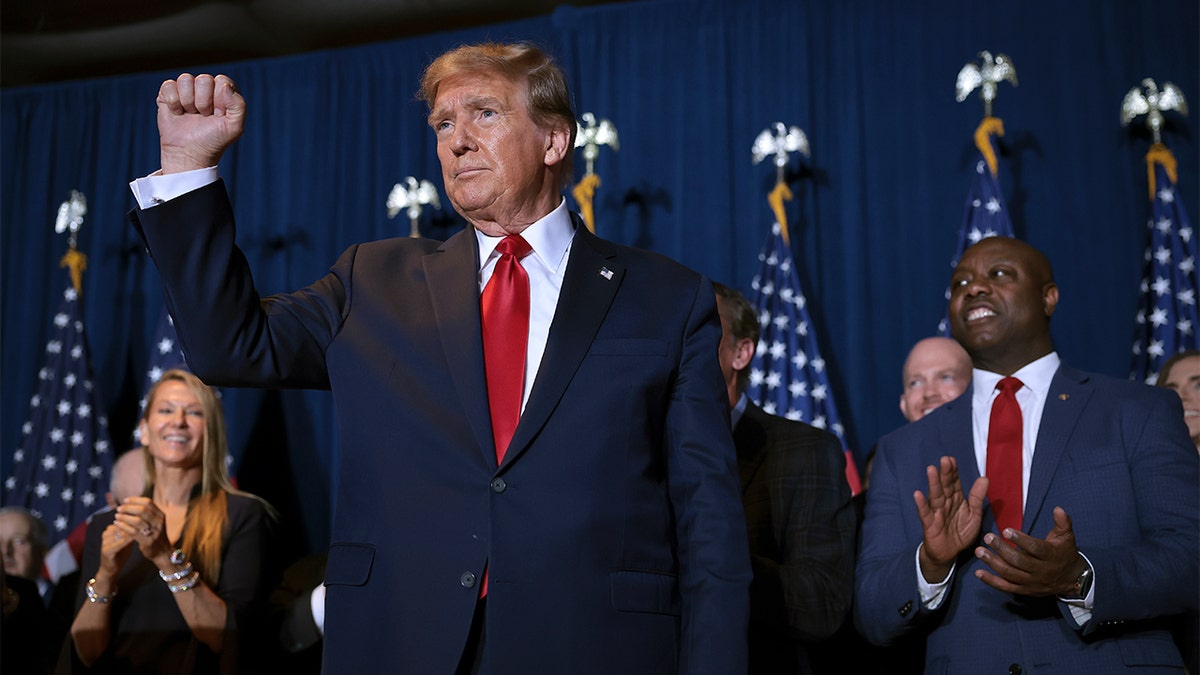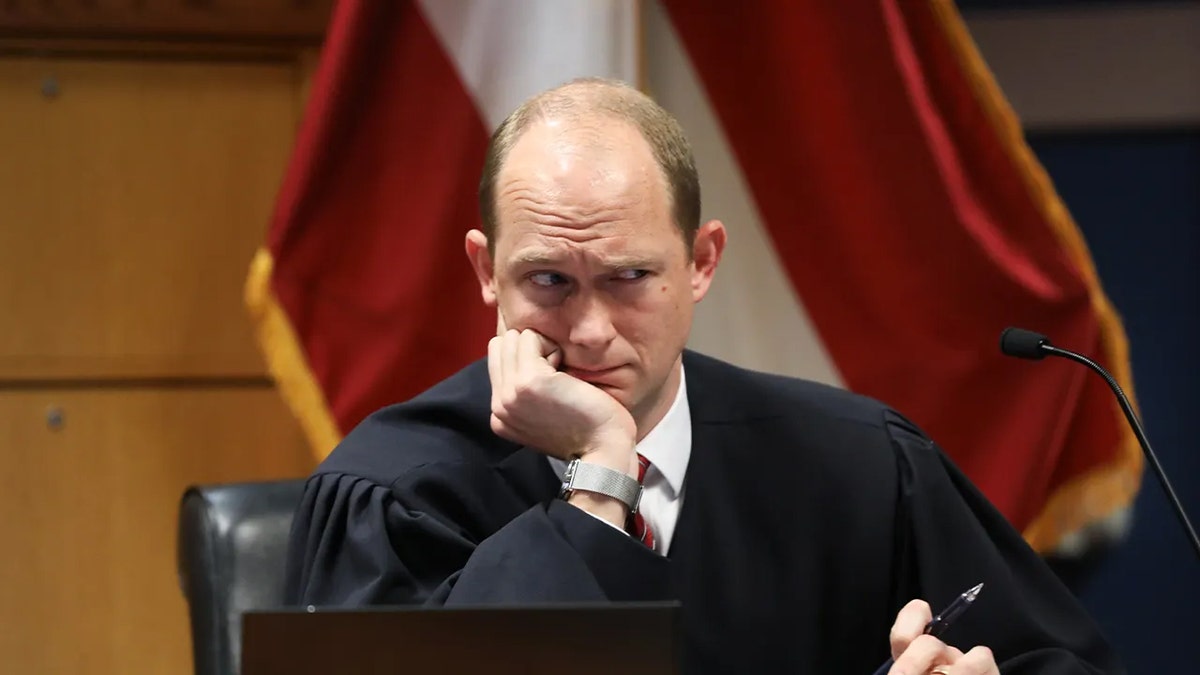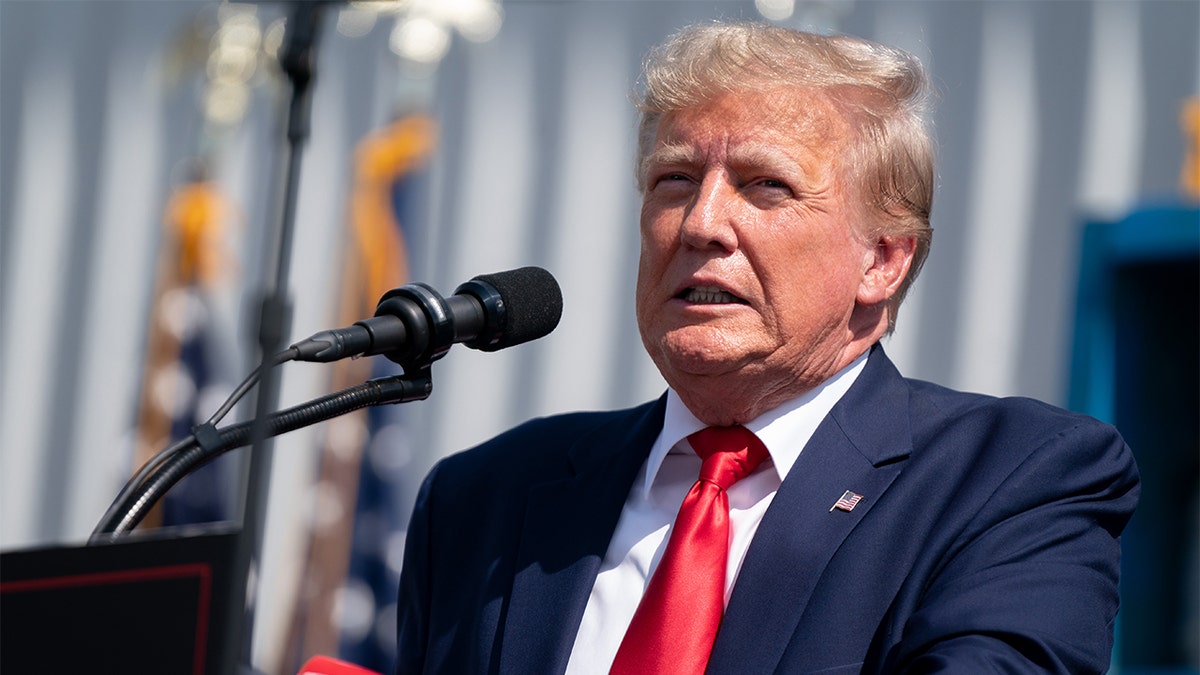Trump needs to heal the Republican Party: Karl Rove
Fox News contributor Karl Rove discusses the impact of third-party candidates in the 2024 presidential election and how former President Trump can win over Nikki Haley voters on Sunday Night in America.
Former president Donald Trump and his co-defendants in the Georgia election interference case have asked a judge to let them appeal the indictment against them on First Amendment grounds.
On Monday, Trump filed a joint motion with 14 co-defendants asking Fulton County Superior Court Judge Scott McAfee to allow them to appeal his April 4 order in which he said the charges should not be tossed because the defendants’ "actions and statements" about the 2020 presidential election were not constitutionally protected.
In the Monday filing, Trump and the defendants argue that while the court held the indictment is not subject to dismissal, interlocutory appellate review of the defendants’ "vital constitutional protections," is "both prudent and warranted."
"President Trump and the other unjustly accused defendants have jointly filed a motion requesting the Court to grant a certificate of immediate review of its Order denying their pretrial First Amendment challenges," Steve Sadow, attorney for Trump said in a statement.
JUDGE DENIES DONALD TRUMP'S MOTION TO DISMISS CHARGES IN GEORGIA ELECTION CASE

Republican presidential candidate and former President Donald Trump gestures to supporters during an election night watch party at the State Fairgrounds on February 24, 2024 in Columbia, South Carolina. (Win McNamee/Getty Images)
"The motion powerfully expresses that the Indictment wrongfully criminalizes core political speech and expressive conduct protected by the First Amendment. There is no democracy without robust and uninhibited freedom of expression. For these reasons among others, the Court’s Order is ripe for pretrial appellate review," he said.
McAfee has 10 days from his April 4 order to decide whether or not to let the parties appeal. If he does, they will have 10 days from that order to appeal to the Georgia Court of Appeals or the Georgia Supreme Court.
An interlocutory appeal is an appeal of a non-final order issued during the course of litigation.
"Interlocutory appellate review is prudent because Defendants’ challenges, if successful, would bar virtually every count of the Indictment against virtually every Defendant. Resolution of these outcome determinative issues before multiple, lengthy jury trials makes sense," the filing states.
"Immediate appellate review is warranted because the challenges relate to Defendants’ core political, free speech rights in the context of then-ongoing aftermath of the 2020 Presidential election," it says.
"While Defendants cited a plethora of U.S. Supreme Court and U.S. Circuit Court cases supporting their position, no Georgia appellate courts have addressed whether the challenged Georgia statutes can survive the criminalization of Defendants’ core political speech."
GEORGIA JUDGE ALLOWS TRUMP, CO-DEFENDANTS TO APPEAL FANI WILLIS DISQUALIFICATION DECISION

Judge Scott McAfee at the Fulton County Courthouse in Atlanta on Feb. 15. (Alyssa Pointer, Getty Images)
"Based on the more than 45+ (mostly U.S. Supreme Court) cases and historical precedent cited to the Court, Defendants believe their arguments are well-founded and fall squarely within the almost absolute First Amendment protections in the context of their core political speech regarding 2020 Presidential election contest," it says.
John Malcolm, a former Atlanta prosecutor, told Fox News Digital he agrees with Trump and his team of lawyers that his speech about the 2020 election should be protected speech.
He noted that special prosecutor Jack Smith at one point noted that former President Trump "had a right, like every American" to speak publicly about the election and even to claim, falsely, that there had been outcome-determinative fraud during the election and that he had won. He was also entitled to formally challenge the results of the election through lawful and appropriate means, such as by seeking recounts or audits of the popular vote in states or filing lawsuits challenging ballots and procedures."
"Following the 2020 election, Donald Trump did exactly that," Malcolm said. "He and his legal team filed a series of lawsuits challenging the election. Trump also used the bully pulpit and social media to express his views about the election, and he spoke to legislators and other government officials in states in which he was contesting the election."
FANI WILLIS SAYS SHE’S THE ONLY DA IN US WITH ENOUGH ‘COURAGE’ TO PROSECUTE TRUMP

Former U.S. President Donald Trump speaks to a crowd during a campaign rally on September 25, 2023 in Summerville, South Carolina. (Sean Rayford/Getty Images)
"Donald Trump, like everyone else, had a First Amendment right to express his views on these matters and to petition government officials for a redress of grievances. After all, protecting one’s right to engage in political speech is at the core of the First Amendment," he said.
Judge McAfee last week ruled that "after considering the extensive briefing, the argument of counsel, and the indictment, the Court finds these vital constitutional protections do not reach the actions and statements alleged by the State. Nor do the statutes themselves facially violate the First Amendment."
"They argue this prosecution violates the First Amendment’s protections of political speech and activity, freedom of association, and the right to petition Congress as-applied to their alleged conduct, and further contend that the indicted charges are overbroad," he said.
CLICK HERE TO GET THE FOX NEWS APP
McAfee said that after interpreting the indictment’s language "liberally in favor of the State as required at this pretrial stage, the Court finds that the Defendants’ expressions and speech are alleged to have been made in furtherance of criminal activity and constitute false statements knowingly and willfully made in matters within a government agency’s jurisdiction which threaten to deceive and harm the government."
Trump was indicted in August on charges that include the Georgia RICO Act, the Racketeer Influenced And Corrupt Organizations Act, solicitation of violation of oath by a public officer, conspiracy to commit impersonating a public officer, conspiracy to commit forgery in the first degree, conspiracy to commit false statements and writings, conspiracy to commit filing false documents, conspiracy to commit forgery in the first degree and filing false documents.













































